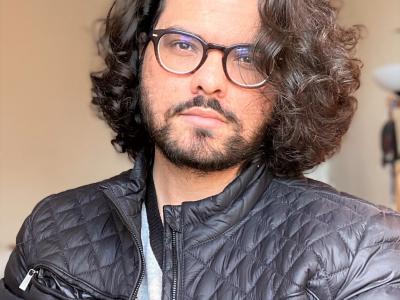
Dr Jivitesh Vashisht is the 2020-21 Junior Anniversary Fellow and also the Brotherton Fellow at the University of Leeds. His research spans a range of literary forms and cultural productions, and typically cuts across twentieth-century fiction, drama, and media cultures (radio and cinema).
My IASH project as Junior Anniversary Fellow, 'Literatures and Cultures of the Medical Case (1970-2020)', initiates a dialogue between two scholarly fields: the study of modern/contemporary transatlantic literature and culture, and the recent multidisciplinary work on the ‘case’ – as both a style of medico-scientific reasoning and its narrative incarnation as a case-history. Due to the case-history’s blending of scientific knowledge with life-writing, it has long been understood as epitomising medicine and literature’s inseparability. That said, this intertwinement of the case-history and the literary/cultural field has largely been traced within the medical humanities, literary studies, and the history of science until the early-twentieth century. Writers’ and artists’ unprecedented engagement with the genre since then (especially beginning with the 1970s), ranging from retellings and adaptations of famous cases to the appropriation of the genre in their own creative practice, remains understudied. My project is one of the first book-length accounts of the widespread importation and mediation of medical case-histories in literature and culture from the latter half of the twentieth century to the present day. It assembles a transatlantic corpus of fiction, memoir, drama and performance art (by Siri Hustvedt, Deborah Levy, Will Self, Harold Pinter and Peter Brook, among others), examining them for the first time as a coherent and interlinked canon of ‘literatures and cultures of the medical case’ (1970-2020).
A key aim is to offer a critical corrective to certain influential accounts of the contemporary encounter between literature and medical science (such as the literary ‘neuro-humanities’) that are largely concerned with the substance of the exchanges between them. Instead, my work calls attention to the style and form of medical writing as a key pivot in this ongoing scientific-literary conversation. Informed by theories and methods from archival, adaptation, and intertextuality studies, I hope to show that literary/cultural retellings of cases constitute a ‘creative-critical’ reflection on the limits and potential of the format of the medical case-history: by subjecting the genre to unprecedented experiments, they potentially offer medicine newer, and more ethically robust, models of telling the story of another’s suffering on their behalf.
